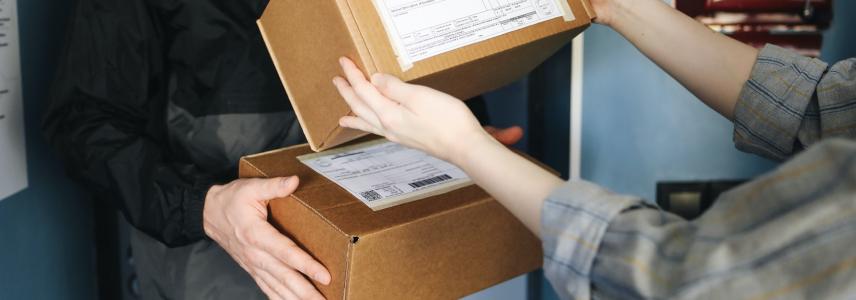What does the increase in online sales mean for you?

As a result of the COVID-19 lockdowns, European consumers are shopping online much more than before. This trend is clear in the Home Decoration and Home Textiles (HDHT) sector. Online sellers have benefited from consumers’ need to improve their living spaces. So, what does this increase in e-commerce mean for you as a supplier in the European HDHT sector?
Online HDHT sales successful
In 2020, European consumers spent a lot more time at home due to lockdowns and other social distancing measures. Although many businesses suffered due to these measures, the European HDHT sector has benefited in some ways. Consumers invested in making their homes and gardens comfortable, efficient, and suitable for remote working. Many retailers used this side effect of the pandemic to their advantage.
For example, the Dutch HDHT retail sector achieved an 11% year-on-year sales increase in the first 6 months of 2020. In the same period, the Do-It-Yourself/Garden and Home & Living categories recorded the largest increases in online spending of all Dutch e-commerce. Increases in those categories ranged from 62 to 71%. This increase in demand is unlikely to continue in the long-term. Still, the shift towards online sales is here to stay. So, how you should respond to this?
Supplying products for online retail
The increase in e-commerce may seem like a huge change. But actually, it does not have much effect on how you do business as an exporter. European HDHT retailers often sell their products both in stores and online. So, the way you supply to them stays the same. Also, supplying to online-only retailers does not change things. These companies also need to take stock before they can sell to consumers. Supplying to online retail is not a separate market channel in itself.
Selling your products online can be challenging
Another way to use the online sales trend to your advantage is by opening your own webshop. But, this is not as simple as it may seem. Channelling online sales via your website means:
- Supplying small batches or individually packaged items;
- Being prepared to pre-stock and offer more just-in-time supply concepts;
- Arranging effective consumer payment systems;
- Competing with experienced and well-known European and producer-country wholesalers/retailers; and
- Dealing with aftersales on a business-to-consumer (B2C) level, including returns and replacements.
The new European Market Surveillance Regulation applies from July 2021. This states that non-European manufacturers of products such as toys or energy-related products must have an economic operator in Europe. This is often the importer. In the current situation, consumers are the importer in online B2C sales. In theory, this makes them responsible for product safety. This changes under the new legislation, which makes the economic operator responsible.
Direct online sales to European consumers can be complicated and costly. Instead, focus on finding a European importing wholesaler or retailer with a strong online presence to supply to. This means you benefit from the increase in online sales, but do not need to change your supply process.
Globally Cool B.V. wrote this news articles for CBI in collaboration with GO! GoodOpportunity and Remco Kemper.
Stay informed
To stay informed on the latest developments in the HDHT sector, subscribe to our newsletter.